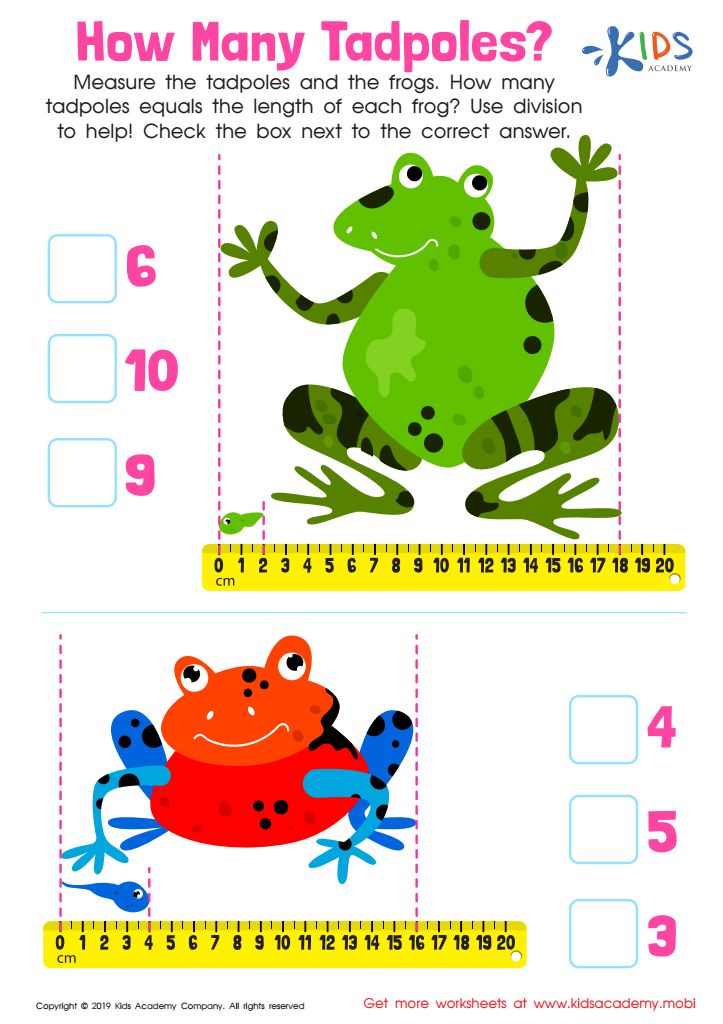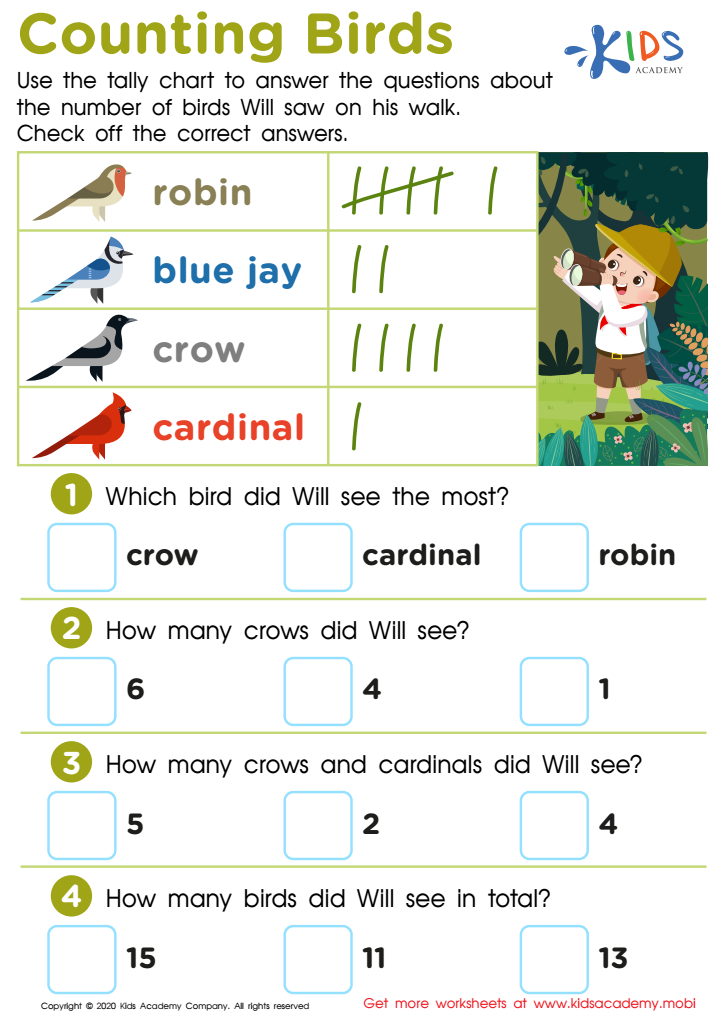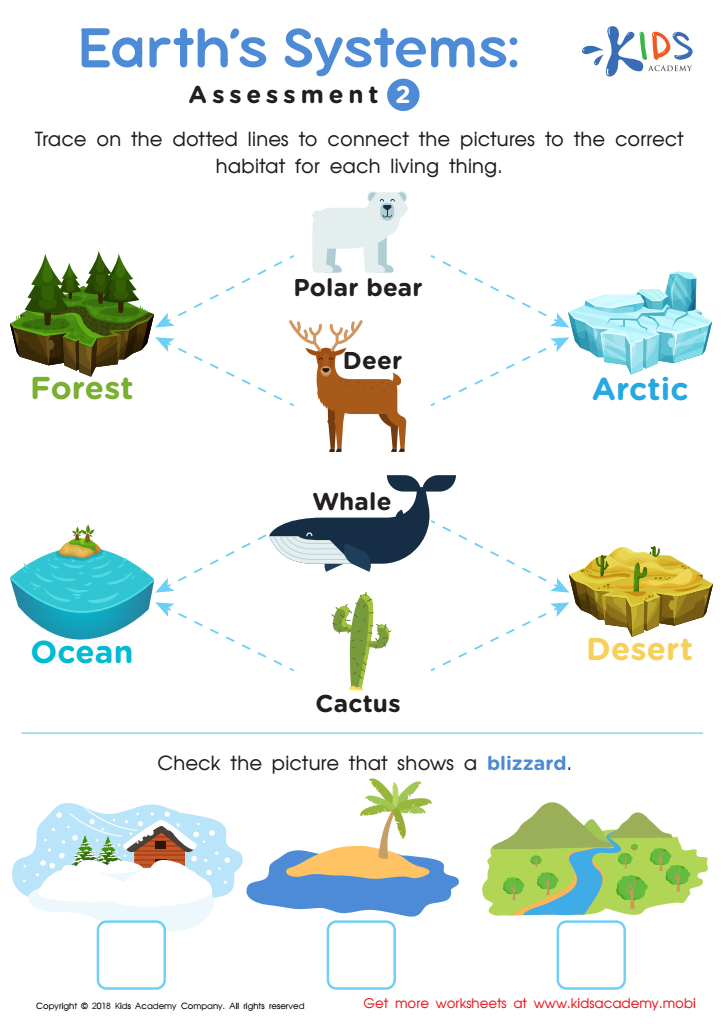Basic Addition Science Worksheets for Ages 6-8
4 filtered results
-
From - To
Discover our engaging Basic Addition Science Worksheets designed for children aged 6 to 8! These worksheets seamlessly blend foundational math skills with exciting science themes, making learning both enjoyable and effective. Each activity encourages children to practice addition while exploring scientific concepts, fostering a deeper understanding of the world around them. Our colorful, interactive worksheets cater to various learning styles, ensuring that every child can enhance their math skills with confidence. Perfect for classrooms or home study, these resources help young learners master basic addition in a fun, engaging manner. Start your child's educational journey today with our comprehensive worksheet collection!


How Many Tadpoles Worksheet


African Wildlife: Giraffe Worksheet


Counting Birds Worksheet


Earth's Systems: Assessment 2
Basic addition is a foundational skill in early mathematics that plays a crucial role in a child's overall academic development and problem-solving abilities. For parents and teachers working with children aged 6 to 8, fostering a strong understanding of addition is essential for several reasons.
Firstly, mastering addition helps build numerical fluency, allowing students to perform more complex operations in later grades, such as subtraction, multiplication, and division. This foundational knowledge supports their ability to reason mathematically and apply math in real-life situations, like budgeting or measuring ingredients in recipes.
Secondly, a strong grasp of basic addition boosts children's confidence and encourages a positive attitude toward learning. The sense of accomplishment from tackling addition problems can motivate learners to explore and engage with more challenging material.
Furthermore, basic addition serves as a gatekeeper for more abstract mathematical concepts, including fractions, percentages, and problem-solving strategies. By developing these skills early on, children will be better equipped to handle various mathematical challenges they will encounter in school and beyond.
In conclusion, parents and teachers should prioritize teaching basic addition to ensure a well-rounded education that nurtures young learners' critical thinking and arithmetic capabilities, setting them up for long-term success.
 Assign to My Students
Assign to My Students















